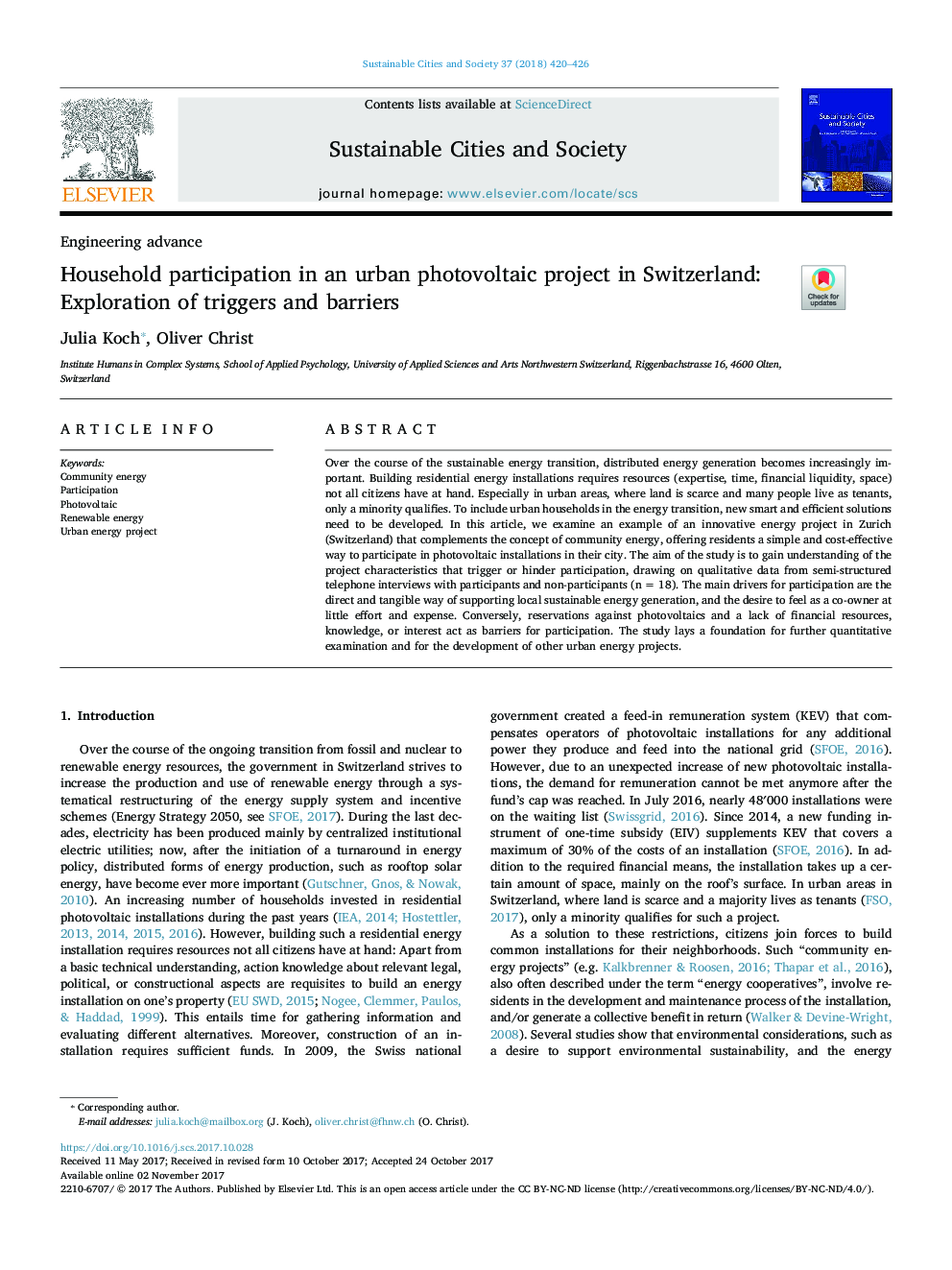| Article ID | Journal | Published Year | Pages | File Type |
|---|---|---|---|---|
| 6775765 | Sustainable Cities and Society | 2018 | 7 Pages |
Abstract
Over the course of the sustainable energy transition, distributed energy generation becomes increasingly important. Building residential energy installations requires resources (expertise, time, financial liquidity, space) not all citizens have at hand. Especially in urban areas, where land is scarce and many people live as tenants, only a minority qualifies. To include urban households in the energy transition, new smart and efficient solutions need to be developed. In this article, we examine an example of an innovative energy project in Zurich (Switzerland) that complements the concept of community energy, offering residents a simple and cost-effective way to participate in photovoltaic installations in their city. The aim of the study is to gain understanding of the project characteristics that trigger or hinder participation, drawing on qualitative data from semi-structured telephone interviews with participants and non-participants (n = 18). The main drivers for participation are the direct and tangible way of supporting local sustainable energy generation, and the desire to feel as a co-owner at little effort and expense. Conversely, reservations against photovoltaics and a lack of financial resources, knowledge, or interest act as barriers for participation. The study lays a foundation for further quantitative examination and for the development of other urban energy projects.
Related Topics
Physical Sciences and Engineering
Energy
Renewable Energy, Sustainability and the Environment
Authors
Julia Koch, Oliver Christ,
